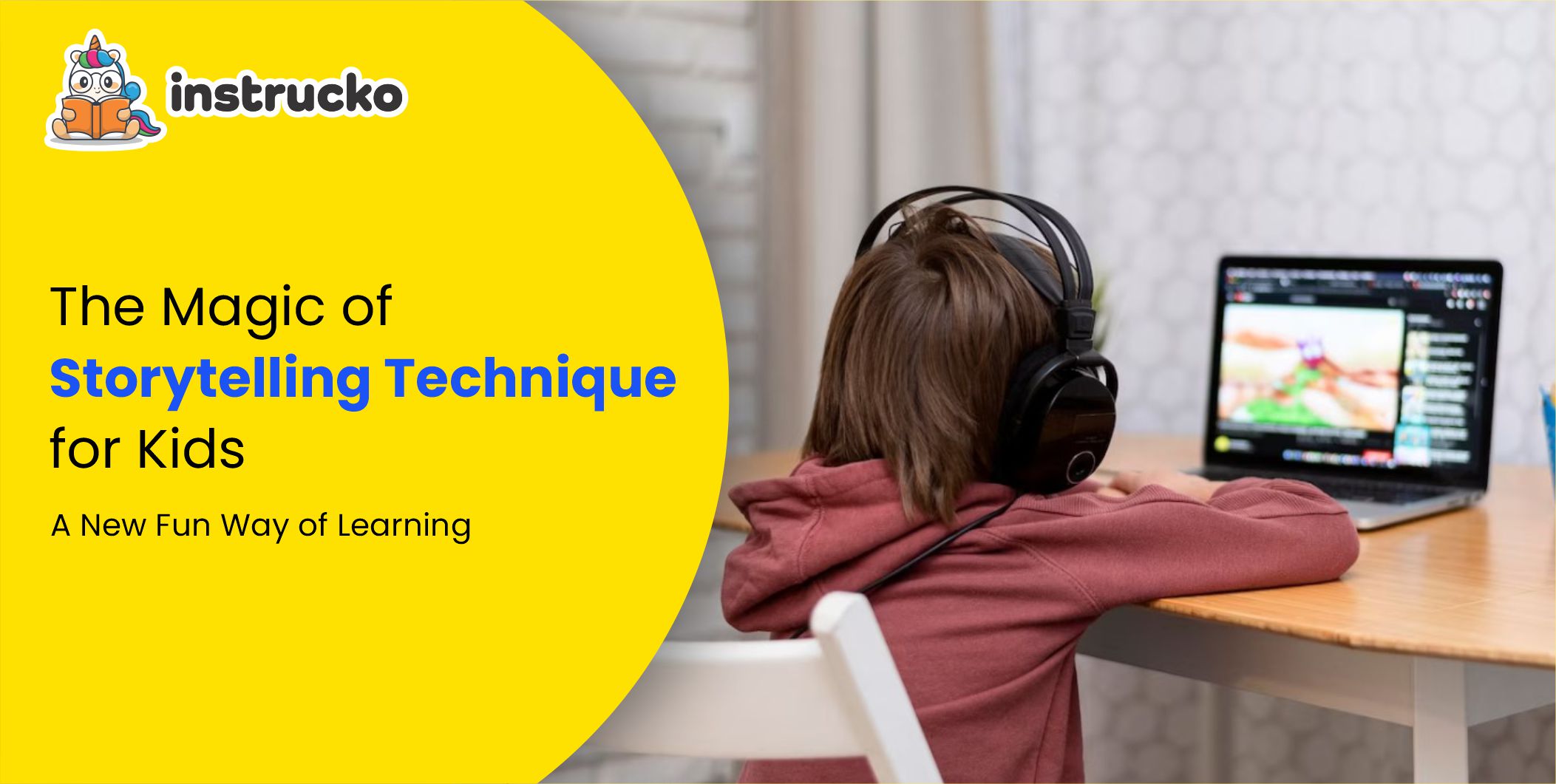Harvard University says ‘Telling stories is one of the most powerful means that leaders have to influence, teach, and inspire. What makes storytelling so effective for learning? For starters, storytelling forges connections among people, and between people and ideas. Stories convey the culture, history, and values that unite people. When it comes to our countries, our communities, and our families, we understand intuitively that the stories we hold in common are an important part of the ties that bind.’
Stories take us to different worlds, ignite our imaginations and give us valuable lessons. But did you know that storytelling can also be a powerful teaching tool for children? Storytelling techniques have gained increasing popularity in education because they bring new interest, engagement and effective learning to young minds. In this blog we will delve into the magic of storytelling and how it has become a way of transferring knowledge for children to be creative and fun.
The power of the mind
One of the great benefits of storytelling in education is its ability to stimulate children’s imagination. Stories are like windows into another world, allowing children to explore faraway places, meet interesting characters, and imagine situations. As children listen or read stories, they naturally create mental images, enhancing their creative thinking and intellectual development.
Interesting teaching experience
Traditional teaching methods sometimes feel mundane to children. But storytelling puts some interest in education. When concepts are presented in narrative form, children are engaged in the story, making the learning process interesting and memorable. Whether it’s history, science, or math, storytelling encompasses the topic and eliminates the monotonous focus of learning.
Increased understanding and retention
The narrative goes beyond dry facts and figures. It weaves facts, emotions, and context together, making it easier for children to understand and remember information. By using relatable characters and situations, children are able to grasp complex concepts by relating them to familiar experiences. As a result, understanding and knowledge retention are greatly enhanced.
Language development
Listening develops children’s vocabulary, language structure and communication skills. They express themselves in words, phrases, sentences and other utterances in the story. Additionally, storytelling improves listening skills as children pay attention to details, follow the story and understand sequences of events.
Storytelling is a fundamental human skill that we use to make sense of the world around us. It's how we learn, how we connect with others, and how we create meaning. - Brené Brown, author and researcher
An emotional connection
The stories often contain moral lessons, moral dilemmas and emotional journeys that tell the story of children. Through these stories, children can learn empathy, compassion, and the consequences of actions. The emotional connection between the characters and their experiences makes the lessons more impactful and meaningful.
Encouraging critical thinking
Effective stories encourage children to think critically and to do research. They are driven to predict outcomes, discuss decisions made by characters, and even suggest alternative solutions. This creates a higher level of thinking and the ability to analyze situations from a different perspective.
Interactive learning
Modern storytelling incorporates interactive elements such as asking questions, encouraging discussion, and involving children in decision-making in the story. This active participation keeps children engaged and allows them to take ownership of their learning journey.
Storytelling is a powerful tool that can be used to teach, to inspire, and to change the world. - Malala Yousafzai, Nobel Peace Prize laureate
Conclusion
The magic of storytelling has changed learning for children by instilling creativity, engagement and imagination. Whether it involves the study of historical events, scientific theories, or social values, stories offer a holistic and engaging approach to education. As parents and teachers, embracing storytelling as a medium can open doors to a new world of joy and light for young minds. So, the next time you share a story with a child, remember that you are not just entertaining them; You spark their curiosity, feed their intellect and stimulate their passion for learning.






